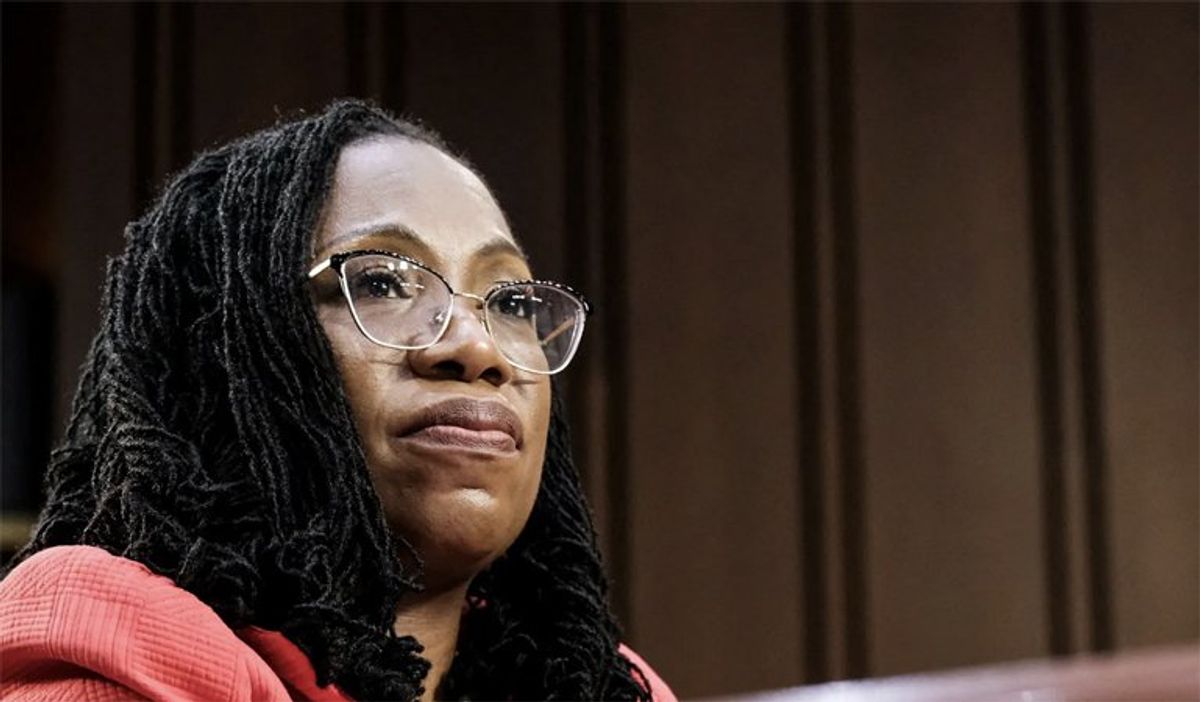
Supreme Court Justice Ketanji Brown Jackson is doing something unusual this year amid rulings from the court, a U.S. senator observed.
In a thread on X, Sen. Sheldon Whitehouse (D-RI) noticed that Justice Jackson's dissents aren't normal, and he thinks there's a reason for it.
"But what if we’re not in ordinary times?" he asked.
On Wednesday, Whitehouse explained that the court typically embraces "collegiality,” after all, he said, "you’re there for life, so you may as well get along."
Secondly, he noted, justices sometimes will form alliances on different issues.
"Hence decorum matters," said Whitehouse.
Again, however, that is during "ordinary" times.
"What if we are in a time when a billionaire-funded scheme has spent decades trying to pack the Court with billionaire-agreeable justices, so as to 'capture' the Court in the sense of 'regulatory capture' or 'agency capture' — and what if the billionaires have finally succeeded?" the senator wrote.
"What if we are in a time when a billionaires’ gifts program has given certain justices ‘lifestyles of the rich and famous’ and they have reciprocated with favorable rulings?" he added. "And sheltered behind the weakest ethics review of any court in the land whenever the gifts program is challenged?"
He continued, asking, "What if we are in a time when favored parties and litigants win victories with statistically astounding regularity? And justices are feted at organizational fund-raising dinners where those statistically-astounding winners convene? What if we are in a time when novel judicial doctrines, reverse-engineered for happy results for certain special interests, are grown and fertilized in special-interest-funded legal hothouses and then make their way through the Court to become the law of the land?"
If all of these things are true, the senator asked, shouldn't they be discussed, even if that means ignoring "collegiality?"
Jackson, he said, appears to have noticed a pattern in the kinds of parties winning at the court. In those, she also noticed "procedural discrepancies."
"She has begun looking at interests, and motives, and connections. She’s begun to point behind the curtain at what 'collegiality' obscures," characterized Whitehouse. "What if a colleague uses your 'collegiality' as a strategic tactic, like a pick on a basketball court, deliberately for advantage? Surely, the coin of collegiality has a flip-side obligation to behave in such a way that your colleague’s collegiality is never abused."
Jackson's history is from the district and circuit courts, Whitehouse recalled. "Many judges" have concerns about the Supreme Court and the problems happening "in plain view. Judges are not idiots."
Collegiality has its limits, Whitehouse said. It appears she's unwilling to be manipulated into denying "mischief" by the unspoken rule of being nice.
"The Schemers have much more to fear, and they know it," he closed. "As best I can tell, KBJ is being true to herself, true to her oath, and true to her native land."




